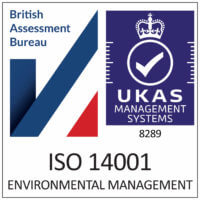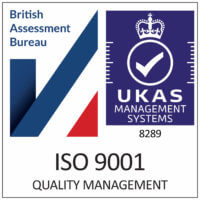The Impact of Peat-Free All-Purpose Compost in Different UK Weather Conditions
Oct 7th 2023
Imagine gardening without the guilt of damaging the environment. That’s the promise of peat-free all-purpose compost, a sustainable alternative that is gaining popularity in the United Kingdom. In this article, you will discover the impact of using peat-free compost in different UK weather conditions. From the scorching heat of summer to the chilly winds of winter, explore how this eco-friendly option performs and revolutionizes the way we approach gardening in the changing climate.
Heading 1: The Importance of Peat-Free All-Purpose Compost
Subheading 1: What is Peat-Free All-Purpose Compost?
Peat-Free All-Purpose Compost is a type of soil amendment that is made without the inclusion of peat. Peat is traditionally used in a wide range of horticultural and gardening applications due to its water retention properties. However, the extraction and use of peat have significant environmental consequences, such as the release of carbon dioxide and the destruction of peatlands. Peat-Free All-Purpose Compost offers an alternative that is both environmentally friendly and effective for plant growth.
Subheading 2: Environmental Impact of Peat-Based Composts
The use of peat-based composts has been a common practice in gardening for many years. However, the extraction of peat from peatlands leads to the release of stored carbon dioxide into the atmosphere, contributing to climate change. Additionally, the extraction process destroys vital ecosystems and habitats, impacting biodiversity. By using peat-free all-purpose compost instead, you can help mitigate these negative environmental impacts.
Subheading 3: Advantages of Peat-Free All-Purpose Compost
Peat-Free All-Purpose Compost offers several advantages over its peat-based counterparts. Firstly, it reduces the demand for peat extraction, helping to preserve peatlands and their associated biodiversity. Secondly, peat-free composts have excellent water retention properties, ensuring that your plants receive adequate moisture even in dry weather conditions. Finally, peat-free composts are rich in organic matter, providing essential nutrients for plant growth and improving soil structure.
Heading 2: The Effectiveness of Peat-Free All-Purpose Compost in Different Weather Conditions
Subheading 1: Peat-Free All-Purpose Compost in Cold and Frosty Weather
Cold and frosty weather poses unique challenges to plant growth. However, peat-free all-purpose compost can help mitigate these challenges. Its insulation properties help protect plant roots from freezing temperatures, while its organic matter content improves soil structure, allowing for better drainage. When using peat-free all-purpose compost in cold weather, it is essential to consider factors such as proper watering and selecting cold-tolerant plants.
Subheading 2: Peat-Free All-Purpose Compost in Hot and Dry Weather
In hot and dry weather conditions, plants are at risk of drought stress and inadequate moisture retention. Peat-free all-purpose compost can help combat these challenges by retaining moisture and improving water absorption in the soil. Its organic matter content enhances water-holding capacity, ensuring that plants have access to adequate hydration. To optimize plant performance in hot and dry weather, it is crucial to water plants deeply and less frequently, providing enough moisture to penetrate the root zone.
Subheading 3: Peat-Free All-Purpose Compost in Wet and Rainy Weather
Wet and rainy weather can lead to water logging and poor drainage, which can negatively affect plant growth. Peat-free all-purpose compost plays a vital role in improving soil drainage, allowing excess water to move away from the roots and preventing water logging. When using peat-free all-purpose compost in wet weather, consider factors such as proper drainage and selecting plants that can tolerate excess moisture.
Heading 3: Cold and Frosty Weather
Subheading 1: Understanding the Challenges of Cold and Frosty Weather for Plants
Cold and frosty weather can pose challenges to plant growth. Freezing temperatures can damage plant tissues and inhibit nutrient uptake, leading to stunted growth or even death. Additionally, cold weather can cause the soil to freeze, limiting root expansion and nutrient availability. It is crucial to provide plants with adequate protection and insulation to withstand these conditions.
Subheading 2: The Role of Peat-Free All-Purpose Compost in Providing Insulation and Nurturing Plants during Winter
Peat-free all-purpose compost provides insulation to plants during winter, protecting their roots from freezing temperatures. Its organic matter content acts as a natural insulating layer, preventing heat loss from the soil and maintaining a stable temperature for root development. Additionally, the nutrients and microorganisms present in peat-free all-purpose compost support plant growth and strengthen their immune systems, making them more resistant to cold and frost damage.
Subheading 3: Key Considerations for Using Peat-Free All-Purpose Compost in Cold and Frosty Weather
When using peat-free all-purpose compost in cold and frosty weather, it is important to consider several factors. Firstly, choose cold-tolerant plants that can withstand freezing temperatures. Secondly, provide additional protection to plants by using mulch or plant covers. Mulching with peat-free compost can further insulate the soil and regulate temperatures. Finally, monitor water levels carefully, as frozen soil may prevent proper drainage and lead to waterlogging.
Heading 4: Hot and Dry Weather
Subheading 1: Understanding the Challenges of Hot and Dry Weather for Plants
Hot and dry weather poses challenges to plant growth due to increased evaporation rates and decreased water availability. Plants can experience drought stress, leading to wilting, yellowing of leaves, and decreased productivity. It is essential to provide adequate moisture and support to plants during hot and dry weather conditions.
Subheading 2: The Role of Peat-Free All-Purpose Compost in Retaining Moisture and Preventing Drought Stress
Peat-free all-purpose compost plays a crucial role in retaining moisture during hot and dry weather. Its organic matter content improves soil structure and water-holding capacity, ensuring that plants have access to adequate hydration. Additionally, the use of peat-free compost reduces water runoff, allowing more water to penetrate the root zone and minimizing evaporation. This allows plants to remain resilient and healthy even in prolonged periods of hot and dry weather.
Subheading 3: Key Considerations for Using Peat-Free All-Purpose Compost in Hot and Dry Weather
When using peat-free all-purpose compost in hot and dry weather, consider several key factors. Ensure proper watering practices, deeply watering plants to encourage deeper root growth and minimize water loss through evaporation. Mulching with peat-free all-purpose compost can further help retain soil moisture and regulate soil temperature. Finally, select drought-tolerant plant varieties that can thrive in arid conditions.
Heading 5: Wet and Rainy Weather
Subheading 1: Understanding the Challenges of Wet and Rainy Weather for Plants
Wet and rainy weather can present challenges for plants, including water logging, soil compaction, and increased disease susceptibility. Excess moisture can lead to root rot, nutrient leaching, and poor oxygen availability in the soil. It is important to mitigate these challenges and provide plants with proper drainage and aeration.
Subheading 2: The Role of Peat-Free All-Purpose Compost in Improving Drainage and Preventing Water Logging
Peat-free all-purpose compost plays a crucial role in improving soil drainage and preventing water logging. The use of peat-free all-purpose compost in wet and rainy weather helps create a healthy and well-balanced soil environment for optimal plant growth.
Subheading 3: Key Considerations for Using Peat-Free All-Purpose Compost in Wet and Rainy Weather
When using peat-free all-purpose compost in wet and rainy weather, consider important factors to ensure plant health. Opt for well-draining containers or amend garden beds with peat-free compost to improve soil drainage. Avoid overwatering plants and consider implementing raised bed or container gardening to prevent water logging. Additionally, selecting plant varieties that are suited to wet conditions can increase the likelihood of successful growth.
Heading 6: The Influence of Weather on Peat-Free All-Purpose Compost Performance
Subheading 1: The Relationship Between Weather Patterns and Plant Growth
Weather patterns have a significant influence on plant growth and development. Factors such as temperature, rainfall, and sunlight exposure impact a plant’s ability to photosynthesize, absorb nutrients, and carry out essential metabolic processes. Different plants have varying tolerances and adaptations to specific weather conditions. Understanding the relationship between weather patterns and plant growth is crucial for successful gardening and the effective use of peat-free all-purpose compost.
Subheading 2: The Adaptability of Peat-Free All-Purpose Compost to Different Weather Conditions
Peat-free all-purpose compost is highly adaptable and can positively influence plant growth in various weather conditions. Its ability to retain moisture, improve drainage, and provide essential nutrients contributes to plant health and resilience. Regardless of the weather conditions, peat-free all-purpose compost can aid in maximizing plant performance when used in conjunction with proper care and maintenance.
Subheading 3: Evaluating the Efficacy of Peat-Free All-Purpose Compost in the UK
The efficacy of peat-free all-purpose compost in the UK has been evaluated through research and practical applications. Numerous studies have demonstrated its effectiveness in supporting plant growth and improving soil health. The use of peat-free all-purpose compost not only has positive impacts on individual gardens but also contributes to broader environmental goals, such as reducing greenhouse gas emissions and preserving peatland habitats.
Heading 7: Comparing Peat-Free All-Purpose Compost to Peat-Based Composts
Subheading 1: Environmental Implications of Peat-Based Composts in Different Weather Conditions
Peat-based composts have long been utilized in gardening and horticultural practices. However, their extraction and use have significant environmental implications, especially in relation to weather conditions. Peat extraction contributes to carbon dioxide emissions and the destruction of peatlands, impacting climate change and biodiversity. The use of peat-free all-purpose compost provides a more sustainable alternative, reducing these environmental impacts.
Heading 8: Case Studies: Success Stories of Using Peat-Free All-Purpose Compost in UK Weather
Subheading 1: Case Study 1: Urban Gardening in Cold and Frosty Weather
In urban gardening projects, peat-free all-purpose compost has proven to be effective in supporting plant growth in cold and frosty weather. By providing insulation and improving soil structure, peat-free compost helps urban gardeners protect their plants from freezing temperatures. This allows for successful cultivation of a wide range of cold-tolerant crops, enhancing food security and community engagement in urban areas.
Subheading 2: Case Study 2: Sustainable Farming in Hot and Dry Weather
Sustainable farming practices, including the use of peat-free all-purpose compost, have shown remarkable results in hot and dry weather conditions. The ability of peat-free compost to retain moisture and improve water absorption reduces drought stress on crops. This allows farmers to maintain crop yields and reduce water usage, contributing to sustainable agriculture practices and resilience in the face of climate change.
Subheading 3: Case Study 3: Community Gardens Thriving in Wet and Rainy Weather
Community gardens across the UK have successfully utilized peat-free all-purpose compost to overcome challenges presented by wet and rainy weather. By improving drainage and preventing water logging, peat-free compost has enabled communities to cultivate diverse plant species even in excessively wet conditions. This promotes community engagement, local food production, and a stronger connection to nature.
Heading 9: Recommendations and Conclusion
Subheading 1: Best Practices for Using Peat-Free All-Purpose Compost in Varying Weather Conditions
When using peat-free all-purpose compost in varying weather conditions, it is important to follow best practices to maximize plant growth and performance. Consider factors such as specific plant requirements, appropriate watering practices, and soil amendments based on weather conditions. Regularly monitor the health of plants and make adjustments as necessary to achieve optimal results.
Subheading 2: The Future of Peat-Free All-Purpose Compost in the UK
The future of peat-free all-purpose compost in the UK is promising. There is increasing awareness and recognition of the environmental impact of peat-based composts, leading to a growing demand for sustainable alternatives. Peat-free all-purpose compost has demonstrated its effectiveness in different weather conditions, and its adoption is expected to continue to rise as gardeners and landscaping professionals embrace environmentally friendly practices.
Subheading 3: Conclusion: Harnessing the Potential of Peat-Free All-Purpose Compost
Peat-free all-purpose compost offers a sustainable and effective solution for gardeners and horticultural enthusiasts. Its ability to adapt to different weather conditions, improve soil health, and reduce environmental impact make it a valuable resource in promoting plant growth and biodiversity. By harnessing the potential of peat-free all-purpose compost, we can contribute to a more sustainable and resilient future for our gardens and the environment as a whole.






